“Would any of you consider yourselves a victim?” Assistant District Attorney Abby Wallace asks a group of participants — women who’d been arrested for prostitution — gathered in Calvary Episcopal Church’s mural room for a recent Lives Worth Saving class. None speak up.
Wallace follows up: “Do you know any homicide victims?” Several women raise their hands, some speak out: “Jessica,” “Rhonda,” “Juanita.” When other forms of victimization are discussed — rape, physical abuse, childhood sexual abuse — many of the women present, as it turns out, decidedly are victims.
“When ‘victim’ is presented differently, people say, ‘Oh yeah, that’s happened to me’ or ‘I don’t even have these friends anymore because they were a graveyard killing or they were beaten [to death] by a John,'” says Rachel Haaga, executive director of Restore Corps — a nonprofit anti-sex-trafficking agency — and organizer of Lives Worth Saving. “All of those are elements of victimization.”
In a recent meeting, a group of about 30 — men, women, and transgenders; court-mandated participants, resource providers, and volunteers — convene for the four-hour class, a prostitution intervention program that meets monthly to bring people who’ve been arrested for prostitution together with local rehabilitation, shelter, and support resources.
Established in December 2014 through a joint effort of the Memphis Police Department (MPD), the Shelby County District Attorney’s office, and Restore Corps, the class aims to honor, educate, and empower people exploited by the commercial sex industry. Presentations include information from the Health Department about the dangers of STDs; from the DA’s office about the threat of serial rapists, abusers, and murderers; and from survivors who’ve lived “the life” and made it out the other side. Participants who complete the class are eligible to have their current charge dismissed.
Since its inception, Lives Worth Saving has hosted nearly 200 participants; 10 have attended more than once, and many seek assistance afterward. Resources on-hand and available to offenders include personal and career development classes through HopeWorks; counseling and advocacy from the Rape Crisis Center; lodging and long-term rehabilitation services via Moriah House and the Salvation Army; free birth control and health screenings from the Health Department and A Step Ahead; and others.
Representatives from A Way Out, a program run by Citizens for Community Values that offers counseling, health and dental care, change of residence, enrollment in drug and alcohol rehabilitation programs, and mentoring to victims of sexual exploitation, are also present at each month’s meeting. Many of the services offered are free.
An earlier intervention program — the Prostitution Offenders Program Services (POPS) — was created by Shelby County General Sessions Criminal Court Judge Louis J. Montesi Jr. in 2003. The program, which was aimed at helping “persons charged with prostitution who have serious problems with alcohol/drugs and/or mental health issues,” was available to offenders until 2006. After its dissolution, there was no official intervention initiative available until December 2014, when the new/expanded program came to fruition.
As described by Judge Montesi, who now presides over every prostitution case in Shelby County, “the program involves early identification in jail of those persons who are in this population with assignment of legal counsel, pre-trial interviews, and information for the court to release [offenders] with appropriate conditions to address needs/problems.”
Major Christopher Moffatt, who now works in the MPD’s organized crime unit, supervised the department’s VICE team for several years and participated in prostitution stings. Moffatt was instrumental in pushing for implementation of a new intervention program. “I saw how futile the process was, as it was. We were locking up the same women over and over again, and no progress was being made. You can not arrest your way out of this problem,” Moffatt says. “You can make a bigger impact using other methods, which is why Lives Worth Saving exists.”
Haaga adds, “We had to find a way to offer services and start to minimize the chance of more charges that would inhibit their employability later.” By just arresting them, “You’re still not offering them access to services that might help them deal with the vulnerabilities that led them to where they are to begin with.
“No little girl at 4 years old wants to grow up and sell her body. We just have to believe that as a society,” Haaga says. “There are different elements of victimization — or at least vulnerabilities — that currently exist or have existed in their lives that put them where they are right now.”
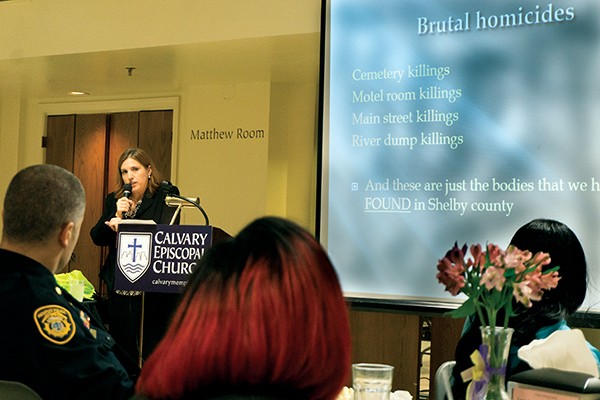 Cindy Putnam McMillion | Connecting Memphis
Cindy Putnam McMillion | Connecting Memphis
Assistant District Attorney Abby Wallace speaks to the class about the dangers of prostitution.
CRIES FOR HELP
The offenders who attend Lives Worth Saving are daughters, sisters, mothers — young and old. According to class intake surveys, most participants have had histories of verbal, emotional, or sexual abuse. Some are homeless, drug addicts, mentally inept, or simply cannot acquire a steady, well-paying job; others are victims of sex trafficking, forced by pimps to walk the streets or advertise their services online.
Standing outside during a break, a mid-20s young woman named *Misty, who’d recently been arrested for prostitution, talks about her former pimp, a “criminally insane” man who tortured her daily. “He woke me up at 5 a.m. every day,” she says. “He dressed me and brushed my hair, like I was a doll. If I ever flinched, he beat me. If he tried to touch me and I [was unwilling], he beat me.”
Misty’s pimp forced her to sell herself while he kept most of the money, doling out only meager amounts to her for food and clothing.
This day, she shows her scars — her left ear is swollen shut, a result of repeated, violent beatings. “He said he was training me to be a warrior,” Misty says as she pulls back her hair. “I told him I didn’t remember signing up for the military.”
Another court-mandated participant, *Jenny — a few months pregnant, despair set deep in her tired eyes — weeps during parts of the presentation. It is her second time attending Lives Worth Saving. An attractive young woman in her early 20s, Jenny says she did well in school and enjoyed writing poetry before she started using drugs — to numb the pain of previous abuse — and ended up on the streets. Her family has practically disowned her. “I can’t eat or sleep,” she says; she worries about the health and future of her unborn baby. “It feels like no one cares about me.”
One woman who attended Lives Worth Saving in April 2016 died from a heroin overdose after the class; two other former participants were murdered. During the DA’s presentation about serial rapists and cases of prostitute homicides in Shelby County, several women sob as a dose of reality hits. Many share stories of Johns who’d beaten or raped them; more offer anecdotes regarding incidents in which they’d feared for their lives.
In Memphis, 4 of 28 female homicide victims in 2011 were known prostitutes; 3 of 25 in 2012; 5 of 22 in 2013; and 2 of 16 in 2014 (updated information for 2015-2016 has not yet been made available). This reflects a higher occupational mortality rate than any other group of women.
Prostitution is categorized as a Class A or Class B misdemeanor in Tennessee, depending on whether the offense occurred near a church or school, punishable with fines and jail time. A Class A offense, in which an offender is charged with prostitution within 100 feet of a church or 1.5 miles of a K-12 school, carries a punishment of “not more than 11 months and 29 days in jail and a fine of not more than $2,500,” according to Tennessee state law. For prostituting by a school, the minimum sentence is seven days in jail and a fine of $1,000. Class B prostitution offenses result in “not more than six months in jail and a fine of not more than $500.” Aggravated prostitution, in which the offender knowingly has HIV, is a felony.
Despite such punishments, advocates note that many of those involved in sex work have been violently coerced. “Nine times out of 10, trafficking victims do not self-identify,” says Haaga. “They are often terrified or have an allegiance to their abuser — like a domestic violence/Stockholm allegiance — so they aren’t going to tell you.”
*Katy, an addict in her early 30s who advertised herself on escort websites just months after an arrest for solicitation on Lamar Avenue, is among those who do not self-identify. “He cares about me,” she says of a man she admitted had invited her, with promises of money and stability, to get into sex work alongside his wife. With no permanent place to call home, she says, “I can always go to him if I don’t have anywhere else to go.”
She recently celebrated more than a month of sobriety and found a temporary place to live, but within a few weeks, she was put back out on her own. Just last week, she shot “ice” — methamphetamine — into a vein in her hand, as evidenced by a freshly scabbed-over track mark. Katy expresses that this is not the life she wants to live, but with no home, no car, and a mound of fines owed for previous minor criminal offenses, she feels overwhelmed — and unable to pick herself up.
By hosting Lives Worth Saving, “Our hope is that at some point there will be a little bit of a break in the armor,” Haaga adds. “If you think of cycles of change with any of us, whether it’s me with my New Year’s resolution or an addict with heroin or a woman in the life, there’s pre-contemplation, contemplation, then movement toward change. Maybe that moment when she was arrested, she wasn’t even a little bit contemplative; she can only think of the bills she’s trying to make money for or her pimp’s hand on her neck, so she’s not trying to change. But maybe the fifth time she gets arrested, she’s over it — maybe she’s recently had a buyer put a knife on her throat.”
Post-class surveys show that most participants benefit from the class. Of 43 recent respondents, an average score of 9.6 (with 10 being the highest possible) was given in response to the question “Did you feel honored today?” An average of 4.6 (with 5 being the highest possible) was given in response to whether they’d learned more about the mission of the District Attorney’s office, about STDs and how to protect themselves from them, and about resources in Shelby County available to assist with a lifestyle change. Thirty-seven participants responded that they had spoken directly with resource providers during the class. “I really enjoyed and needed every conversation, services rendered, and compassion from each member,” wrote one respondent. “Didn’t think this class would help me, but it did. I’m blessed,” another wrote. “I had recently hit ‘hopelessness.’ Thanx 4 giving me ‘hope’ again,” wrote another.
As the class has worked to change the perspectives of several court-mandated participants, it too has changed those of volunteers and organizers. “When we started the class, you started sitting next to a woman, and you’re serving her lunch and talking to her as a person instead of passing her on the street,” MPD’s Moffatt says. “All of a sudden, instead of she’s [a sex worker], it’s her name is _______ and she likes her tea sweet, and you get to find out a little more about her.”
One participant, *Evie, shares with Moffatt and others at their table about her job working at a local warehouse. Despite being gainfully, legally employed, she still struggles financially. But, Evie says, what she really wants to do is become a firefighter. She’s already earned a medical assisting certification from Remington College and hopes she’s able to meet the requirements for her “hero” job.
 Cindy Putnam McMillion | Connecting Memphis
Cindy Putnam McMillion | Connecting Memphis
Restore Corps executive director and class organizer Rachel Haaga, left, sits with a Lives Worth Saving volunteer.
SEX SELLS
Lieutenant Myron Fair worked on MPD’s VICE team for eight years as a patrolman and sergeant; today he is VICE supervisor. While Fair has seen some drop in street prostitution, “Now you’ve got more juveniles and pimps out there with the girls,” he says.
In 2011, the Tennessee General Assembly removed prostitution as a prosecutable crime for minors. Prior to that legislative change, a number of juveniles, some as young as 13, were being arrested and charged with prostitution. In an interview with Memphis magazine for the July 2016 story “A Voice for Jessica,” Shelby County District Attorney Amy Weirich asked, “If a 17-year-old is a victim, how can an 18-year-old be a defendant?”
Pimping — promoting prostitution — is a Class E felony in Tennessee and carries a penalty of one to six years in prison and a maximum fine of $3,000. But, “It’s a harder case to make,” Moffatt says. “You either have to catch him in the act or you have to get her to talk. And remember, when they’re getting dropped off, that’s not their pimp, [they think] that’s their boyfriend.”
Of the prostitution-related arrests in Memphis last year (441 total), five were for promoting prostitution, while 424 were for prostitution/prostitution near church or school. Just 12 were “purchasing/patronizing prostitution” arrests, and one of those was for solicitation of a minor.
“There are people who want to pay for sex — even with children — in our community,” adds Haaga. “Can we point the fingers at them?”
A John’s Class, hosted by Tennessee Correctional Services (TCS), exists to allow patronizing offenders the opportunity to have their current charge dismissed. According to TCS representative Wilbert Hill, the monthly four-hour class is similarly structured to Lives Worth Saving, with court-mandated participants (who pay a $75 class fee) learning about the dangers sex workers face and the importance of safe sex. Attempts to sit in on this class since December have been ineffective, as scheduled classes for December through February did not take place, either due to a lack of registrants or no-shows. However, 51 patronizing arrests have been made in Memphis to date since November 2016.
“Any industry continues to exist and be profitable because there is a demand,” says Haaga. “People going out there and wanting to pay for sex in our community is what creates more victimization.”
While the number of prostitution-related arrests in Memphis has dipped over the past 10 years (from 1,681 in 2006 to 441 in 2016), the crime continues. Moffatt says a portion of the sex-work business has moved off of the streets and is conducted via phone and/or online, with pimps and sex workers advertising on escort websites and other online forums. Making arrests for online prostitution is more “labor intensive,” he says. As well, the MPD force “is down 470 officers right now from our high of 2,480 back in 2011. So, there are fewer resources for us to work with, and there are fewer women on the streets.”
For comparison, the number of prostitution-related arrests, across all categories, in Memphis in recent years were as follows: 1,376 in 2011; 1,023 in 2012; 544 in 2013; 497 in 2014; 484 in 2015. A noticeable drop in prostitution-related arrests hit between 2012 and 2013, while arrests for felony and non-felony possession of marijuana (a comparable, often labeled “victimless crime”) remained steady: 1,399 in 2011; 1,415 in 2012; 1,534 in 2013; 1,551 in 2014; 1,473 in 2015.
Prostitution arrests have historically been more often made in the 38118 (Lamar/airport) and 38106 (Elvis Presley Boulevard) zip codes. “They’ve always been the ‘track,'” Moffatt says. Within the past year, an increasing number of arrests have been made in 38112 and 38016. The hotspots are well known to law enforcement, but “It’s impossible to stop — you lock up multiple women, and as soon as you’re gone, there’s going to be more come out. And as soon as they get out [of jail], unless they address the underlying problem, they’re right back out there.”
Addressing the underlying problem is the aim of Lives Worth Saving and the multiple agencies offering resources to those in “the life.”
“It takes a village,” Haaga says. “When people ask, ‘Why didn’t she just walk away?’ … Well, where was she going to go? Did you offer her your dinner table? Did you offer her alternatives? Did she know you would have helped her? How did you make yourself available to her?”
Based on job-placement assistance and follow-up done by Restore Corps, between April and November 2016, 11 out of 51 Lives Worth Saving court-mandated participants had gotten out of “the life.” Haaga credits this to bringing in Sheila Daniels, a former sex-trafficking victim who spent 20 years as a sex worker and addict and worked under the realm of an abusive pimp. Daniels is now an intervention specialist and case manager for Restore Corps. “We have a goal of getting Sheila to full-time and hiring a licensed clinical social worker ASAP,” Haaga says. “The class is great, but unless we can build our capacity to walk with these participants for more than just the four-hour class, we are still barely scratching the surface.”
Note from the author: In September 2015, the Flyer covered the brutal stabbing of Juanita Gilmore and its possible connection to a string of South Memphis murders in 2011. One of the 2011 homicide victims, Jessica Lewis, was my friend. All of the victims were human beings whose lives had value, despite their criminal histories. None of their cases have been solved. (For more about Lewis’ life and death, read “A Voice for Jessica” on memphismagazine.com.) *Some names in this story have been changed for anonymity.
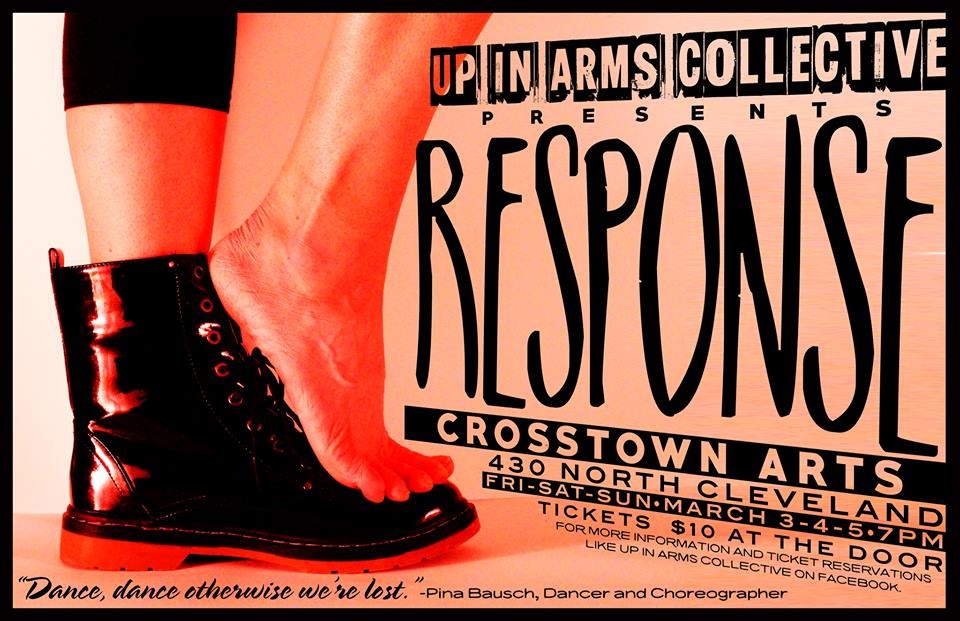
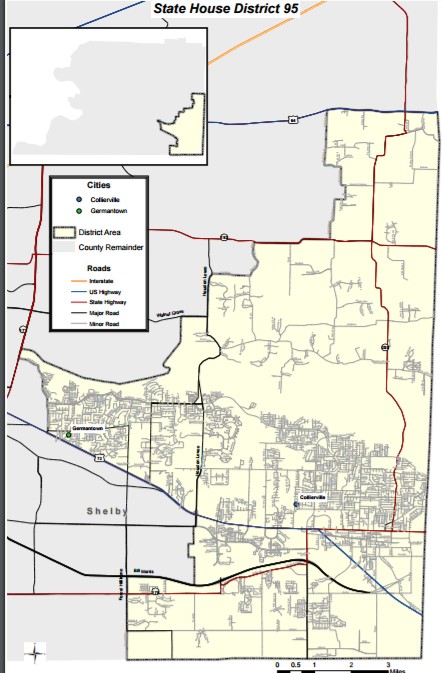
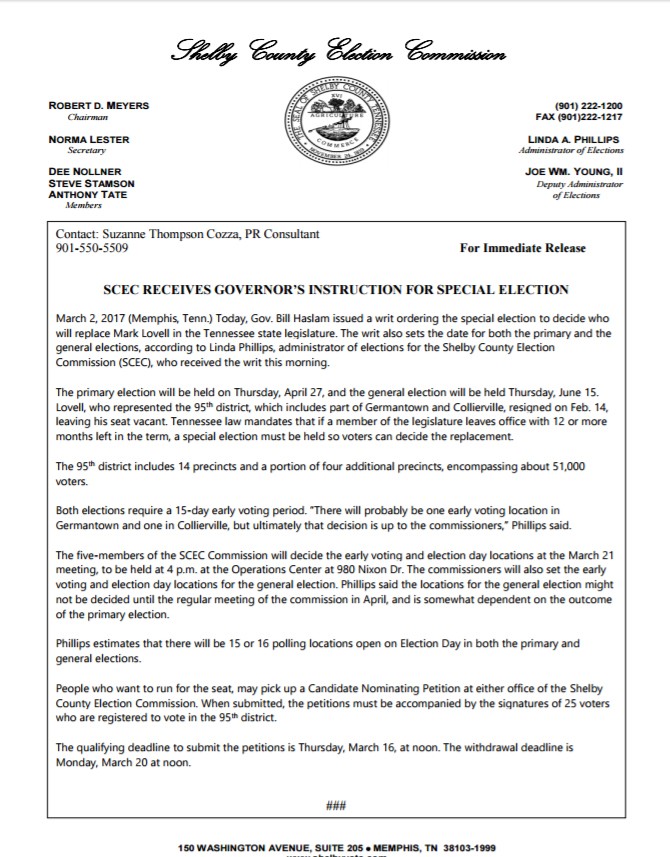



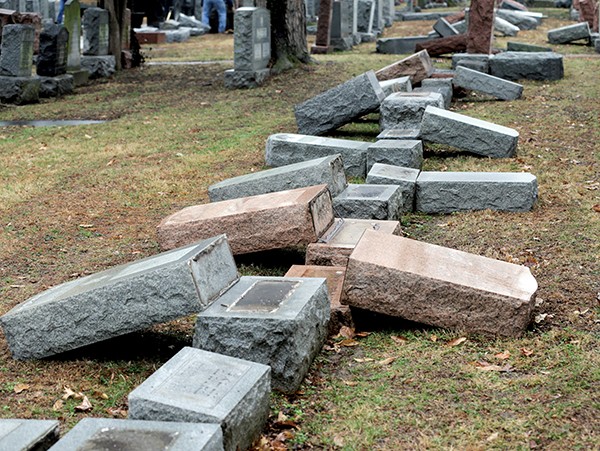 Reuters | Tom Gannam
Reuters | Tom Gannam 

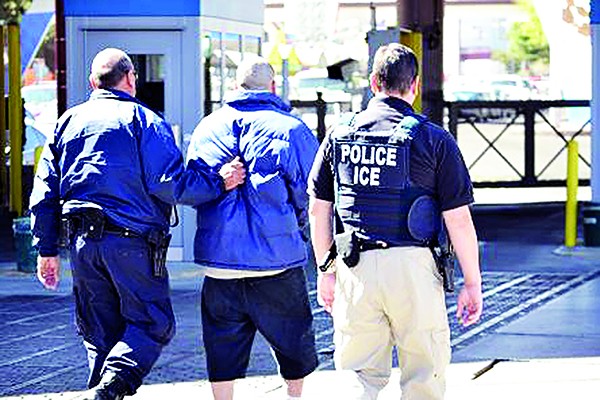
 Cindy Putnam McMillion | Connecting Memphis
Cindy Putnam McMillion | Connecting Memphis  Cindy Putnam McMillion | Connecting Memphis
Cindy Putnam McMillion | Connecting Memphis